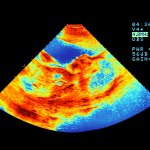Researchers are warning pregnant people that the use of acetaminophen, the active ingredient in Tylenol and many other painkillers, could affect fetal development.
The consensus statement published Thursday was signed by a group of 91 medical experts from around the world and links the pain relief and fever-reducing ingredient to effects that may “increase the risks of certain neurodevelopmental, reproductive and urogenital disorders” in children. It cites findings from 29 studies that have examined the maternal and perinatal use of acetaminophen, indicating that the drug, also known as APAP, can alter a developing fetus’s hormone system. The statement notes that the research does not consider pregnancy in transgender men, nonbinary people or intersex people.
“We are witnessing disturbing increases in the number of children with cognitive, learning and/or behavioural problems,” the statement said.
While the studies cited by the statement are not conclusive evidence, there is enough research to be concerned and to take precautionary measures, said Shanna Swan, a reproductive epidemiologist with the Icahn School of Medicine at Mount Sinai and an author of the consensus statement.
The need for more data is significant because of how popular acetaminophen is. Swan noted other research that indicates many women do not consider Tylenol a medication.
“Over 50 percent of pregnant women take Tylenol. They take a lot of it, and they take it without any consultation with a physician or pharmacist,” Swan said. “It’s sold in gas stations. It’s sold in supermarkets and is sold in huge bottles, and people take lots of it.”
The group is calling for a “focused research effort” to better understand how APAP affects development. As of now, the researchers recommend that pregnant people forgo using APAP unless medically indicated, consult with a physician or pharmacist before using it on a long-term basis, and minimize risk by “using the lowest effective APAP dose for the shortest possible time.”
Acetaminophen is an active ingredient in more than 600 prescription and non-prescription medications, most prominently Tylenol. According to a summary of the cited research, APAP exposure might increase the possibility of attention deficit hyperactivity disorder (ADHD), autism spectrum disorder and language delay in girls. Some research also associates prenatal APAP exposure with genital or reproductive abnormalities.
The U.S. National Health Interview Survey reported that from 2009 to 2017, approximately 1 in 6 children from 3 to 17 years old had a developmental disability diagnosis. Between a survey examining the period from 2009 and 2011 and one examining 2015 to 2017, there was a 9.5 percent increase in the prevalence of diagnosed developmental disabilities among children ages 3 to 17.
An official with the American College of Obstetricians and Gynecologists told The 19th that obstetrician-gynecologists consider acetaminophen safe for pregnant people when used in moderation and after consulting their doctor.
“This consensus statement, and studies that have been conducted in the past, show no clear evidence that proves a direct relationship between the prudent use of acetaminophen during any trimester and fetal developmental issues,” Christopher Zahn, vice president of practice activities for ACOG, said in an email statement.
Swan said the report is not concerned with acetaminophen prescribed by a doctor. Rather, she said, the concern is about the times pregnant people may take Tylenol or other sources of acetaminophen without medical direction.
Swan added that she hopes the consensus statement will raise awareness about how much acetaminophen pregnant people take and the need for more investigation.







